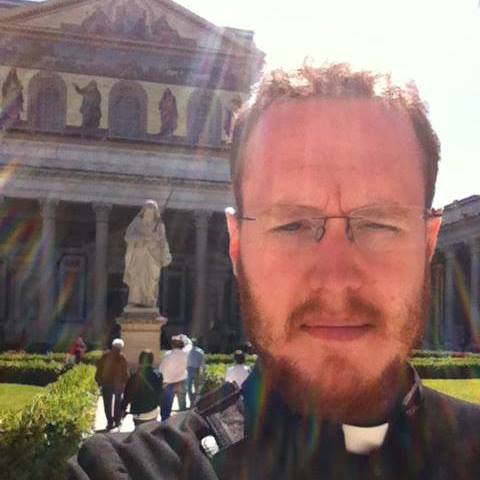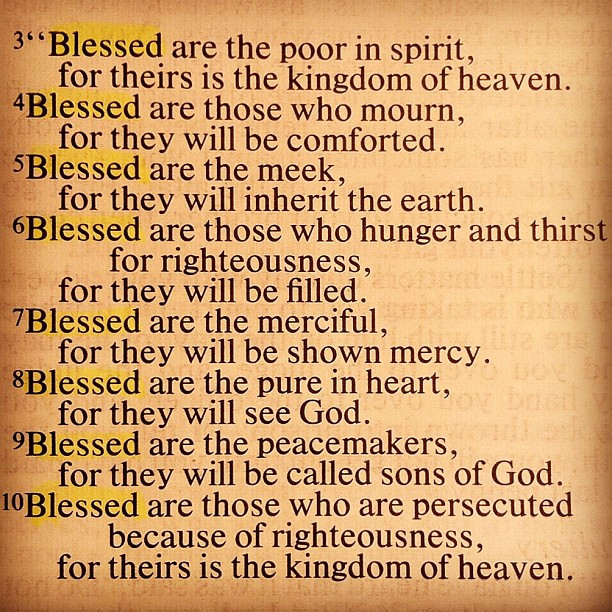
-“Wrath” by Polish artist Marta Dahlig, 12/20/06
The Deadly Sins are listed by St. Thomas (I-II: 84:4) as:
(Saint Bonaventure (Brevil., III, ix) lists the same. The number seven was given by Saint Gregory the Great (Lib. mor. in Job.) XXXI, xvii), and held for most of the Middle Age theologists. Previous authors listed 8 Deadly Sins: Saint Cyprian (mort., iv); Cassian (instit caenob., v, coll. 5, de octo principalibus vitiis); Columbanus (“Instr. de octo vitiis princip.”in”library. Max. vet. Patr. “(, XII, 23);” Alcuin (virtut et vitiis, xxvii and ff.))
“See the souls over whom anger prevailed. In the warm bath of the sun they were hateful, down here in the black sludge of the river Styx do they wish they had never been born.” — Virgil
The river Styx is a toxic marsh that eternally drowned those who are overcome with rage while they are alive. Those who expressed anger (The wrathful) attacked each other on the swamp’s surface while those who repressed anger (The sullen) eternally drowned beneath the marsh.
We have seen a lot of wrath lately.
Wrath and anger are hateful things,
yet the sinner hugs them tight.
The vengeful will suffer the LORD’s vengeance,
for He remembers their sins in detail.
-Sir 27:30-28:1
This song is from the Carmina Burana and the first stanzas in Latin are translated as follows:
Estuans interius
ira vehementi
in amaritudine
loquor mee menti:
factus de materia,
cinis elementi
similis sum folio,
de quo ludunt venti.
Burning inside
with violent anger,
bitterly
I speak to my heart:
created from matter,
of the ashes of the elements,
I am like a leaf
played with by the winds.
Dante described wrath as “love of justice perverted to revenge and spite”. St. John Chrysostom said this regarding anger: He who is not angry when he has cause to be, sins. For unreasonable patience is a hotbed of many vices (Homily 11). St. Thomas Aquinas said, “Consequently, lack of the passion of anger is also a vice, [for it is] a lack of movement in the will directed to punishment by the judgment of reason” (Summa Theologica II, IIae 158.8).
St. Thomas, following Pope St Gregory the Great, also lists the “daughters” of anger (Summa Theologiae II-II, Q. 158, A. 7) as quarreling, swelling of the mind, contumely (contempt or derision), clamor, indignation and blasphemy. For indeed, sometimes anger is directed at one who we deem unworthy, and this is called “indignation.” Sometimes wrathful anger manifests a pride where our anger is rooted in obstinate opinions and superiority. And anger surely gives birth to quarreling, derisiveness, and clamor. Anger directed at God often produces blasphemy.
Of the Virtues that are medicine for anger – Clearly meekness is the chief virtue to moderate anger. Meekness is the proper middle ground between too much anger and not enough anger. Cleary the virtues associated with Charity such as love and peace along with proper fraternal correction assist in both curbing anger and directing it to useful ends. Prudence too will help direct and moderate anger especially through the foresight, circumspection, caution, counsel and discrimination proper to it. Finally humility helps alleviate the swollen mind of anger.
The sin of anger is ultimately a hateful and hurtful thing. It tends to destruction and must be mastered by meekness and patience. Perhaps it is best to remember a scriptural admonition:
Refrain from anger, and forsake wrath!
Fret not; it leads only to evil.
For the evildoers shall be cut off,
but those who wait for the Lord shall inherit the land.(Psalm 37:8-9)
Wrath, or hatred if you will, is an acid within the soul that eats away at the heart until there is almost nothing left – St. John Cassian himself refers to it as a “deadly poison.”1 It turns the Christian soul into a volcanic being, literally waiting to erupt and spill over its hate on to whatever it deems as its target and/or its oppressor. Wrath blocks the light of Christ from filling the soul – when one’s soul is filled to the brim with whipping torrents of blackened anger, clear judgment and humility of heart are not to be found, and if they are, they are buried beneath layers of ash and fire. In this, we see the truly suffocating effects of wrath.
“No matter what provokes it, anger blinds the soul’s eyes, preventing it from seeing the Sun of righteousness.”2 (St. John Cassian). It is a sin that places the soul within reach of the flames of Hell, “in danger of the judgment.” (Matt. 5:22) If left unchecked, wrath eventually produces the most evil fruits: desire for another’s harm or downfall, all-consuming hatred, violence, and many others. “If the passion of anger dominates your soul, those who live in the world will prove to be better than you and you will be put to shame…”3 (St. Theodoros the Great Ascetic)
So, how do we combat this sin and its effects? How are we able to calm a rage within us that seems to have consumed us? The cause of wrath needs to be uncovered beneath the piles of magma that surround the heart – in other words, get to the root of one’s rage. The Jesus Prayer, “Lord Jesus Christ, Son of God, have mercy on me, a sinner!”, has an incredible effect of calming the soul, taming it like a wild beast, and penetrating the heart to replace the fiery heat of rage with a gentle warmth. This prayer can often reveal what has been causing our anger.
“When anger tries to burn up my tabernacle, I will look to the goodness of God, Whom anger never touched… And when hatred tries to darken me, I will look to the mercy and the martyrdom of the Son of God…”4 (St. Hildegard of Bingen) When we find ourselves consumed by the sin of wrath, a sure antidote is found in gazing upon the crucified Savior, Who lifted not a finger against His persecutors, never once cried out against them, never once fought back. “Picture to yourself all the torments and indignities of His Passion, and amazed at His constancy, blush at your own weakness.”5 (Dom Lorenzo Scupoli)
Here, we see the virtue of humility come to our aid in the combat against wrath, for wrath is intimately linked with pride via self-justification of one’s seemingly “righteous” anger, an aspect of wrath which seems to me to speak to the inability to see clearly through one’s rage, as outlined above. As Evagrius notes, wrath “darkens the soul,”6 and this darkening causes the Christian to be lost in their own stormclouds within. Humility shines a light through these clouds, and allows us to see clearly once again.
With humility comes mercy and compassion towards others, a sure way of putting out the fires of wrath, for “the limpidity of mercy is known for patience in bearing injury, and the perfection of humility, when it rejoices in gratuitous slander”7 (St. Isaac the Syrian), and injury (either perceived or real), is the great spark that sets the sin of wrath into motion. “If you are truly merciful, when you are wrongfully and cruelly deprived of what is yours, you will not be angry within or without…”8 (St. Isaac the Syrian)

-by Fr. Christopher Pietraszko, Ignitum, Fr. Christopher serves in the Diocese of London, Ontario.
“When I’ve struggled with “anger” in the past, I’ve often thought, at the moment, that I was being reasonable. Nonetheless, more often than not, I’ve looked back on those moments of anger only to realize that this was only half-the-truth. Reason may have been operating, but there was likely a dimension within myself that wouldn’t entertain an alternative viewpoint. For this reason, St. Thomas Aquinas suggests, as the spiritual master he is, that to counterbalance the vice of Wrath (anger, when it isn’t righteous) we apply meekness.
What I often observe, however, which is where this gets tricky, is too quickly we jump to the assumption that our anger is righteous. In that moment, our fallen nature is no longer at play, we have become as immaculate as the Virgin Mary and her Son, at least in a passive manner, gazing outwardly with rage and discontent. If we have to justify our anger as “righteous” we may actually be too occupied with our own moral disposition than what we are meant to be focused on in a spirit of love for the good.
I’d like to suggest that a regular arrival at the passion “anger” can lead us down a path that is to cause us to become untrustworthy most especially to ourselves, and simply being open to this possibility is of itself a sign that perhaps our anger isn’t disordered. Or even admitting where it is imperfect, concretely. As the “Imitation for Christ” insists: the passionate man is untrustworthy.
Here one may condemn the errors of emotivism, but in practice, they cannot distinguish between their own interior battle with integrity and truth.
What are signs that our way of thinking, our inclination to be angry in a disproportionate (unreasonable manner) has taken over? One is “murmuring.” It is the habit of complaining, whereby we never delight in any improvement, but always “to on to the next thing.” In Catholic circles, this is often tagged as an ‘actively disengaged’ Christian. They are not part of the building up of the Kingdom, nor even the tearing down of structures, they simply only find fault and then consume rage like popcorn. Rather than looking towards the dysfunction with a sense of one’s own potential to have fallen into the same errors, they look at it as though lofty and self-sufficient. And it’s in this anger that often, years later, looking back through the lens of grace, one comes to the terms with their own hypocrisy. That is definitely an ongoing experience in my life – but maybe I’m alone in that.
Meekness in the face of disordered anger is really only possible by the power of the Holy Spirit that gives us “competence” or “self-control.” Both of these things mean to have a strong mind, whereby the flare-up of passion does not trump a discernment process, nor a process that is quick to factor in our own fallen-ness. The mind bends to possibilities that run contrary to the accusations that derive from our passions, and meekness is a habitual act within the soul to assess anger.
Meekness does not denounce anger, but it keeps it hinged to reason, whereby it excludes it when as a passion it is unreasonable, or it moderates it and channels it to something proactive, creative, and redeeming, when it is rooted in the right spirit of things. Without meekness man is lost to his passions, he lacks the Holy Spirit in his mind, and his own discernment cannot be trusted. In this sense we must admit that the sin of wrath is both an addiction and a sign of a weak, broken, mind that thinks itself strong, righteous, and intelligent.
I remember a number of years ago promoting the integration of meekness into our spiritual lives only to receive very livid Christians demanding that meekness was a vice. They were certain about this, and could not dare to quiet themselves before Christ’s Sermon on the Mount. For this reason, Scripture can be the cold water poured upon our passions.”
Love, pray for me,
Matthew
1 – Institutes, “On the Eight Vices”
2 – ibid.
3 – A Century of Spiritual Texts, 30
4 – Scivias, IV:7
5 – The Spiritual Combat, 52
6 – Praktikos, 23
7 – On Ascetical Life, VI:8
8 – ibid., VI:9

















